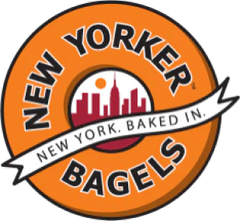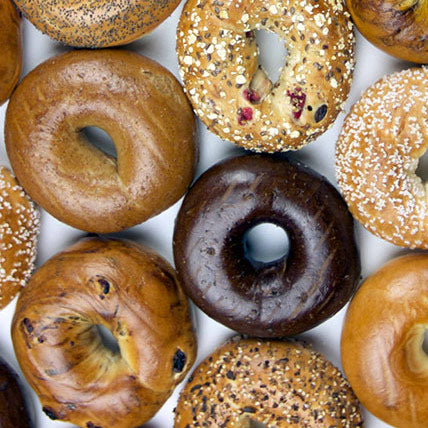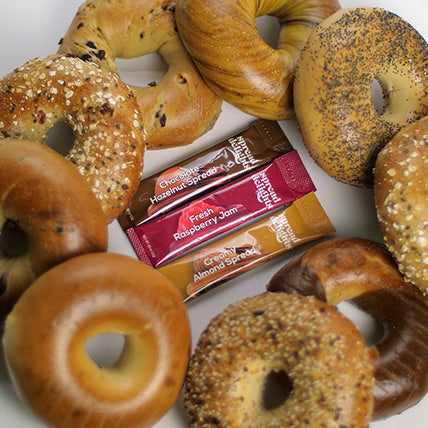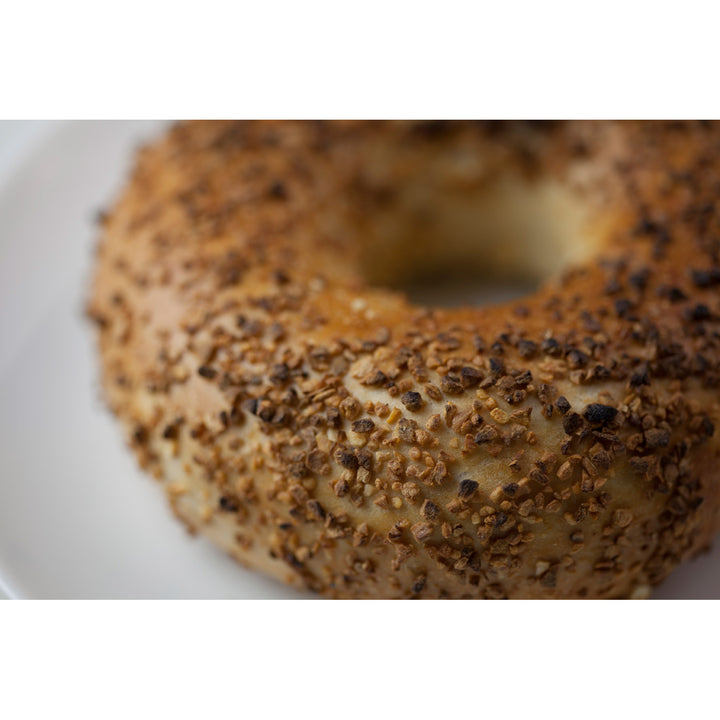If you are a bagel lover, you may thing there’s no such thing as a bad bagel – as long as it comes from your favorite vendor cart! However, there is indeed such a thing as an unacceptable bagel – and it can appear at any time during the bagel making process. Your baker is responsible for ensuring these “bad bagels” never make it into your hands!
First, batches of bagel dough must be closely monitored for temperature—too hot and the dough will rise too high too quickly, or the yeast can be killed too cool and it won’t rise enough. A batch of dough that has gone off will have to be discarded, resulting any many bagels worth!
Second, once the dough is being formed into bagels, any bagel that isn’t up to snuff (too small, misshapen, or irregular) will also be discarded. No lopsided bagels for New Yorker Bagels – thank you very much!
Third, the bagels have to proof. Again, this is a yeast based process, and must be monitored closely to avoid losing an entire batch of bagels. Bagels may also undergo a cooling process, during which they cannot be permitted to continue rising or else the dough will fall and turn sour.
Fourth, bagels must be “kettled” — what we call “kettle boiled.” This involves boiling them for a short time (often in water saturated with malt) to help the bagel form the ideal hard crust that keeps the inside from being dry. Boil too little or too long, and you have a problem! Bagels may also become misshapen at this point or squished until they are no longer round – theses bad bagels will be discarded!
Finally, the bagels are baked. They are scooped out of the kettle, and laid on a tray, topped with any seasonings or flavors (onions, garlic, poppy seeds, and so on) and then flipped onto trays and baked in the oven. (The top of the bagel is actually face down during baking!) The baker must watch closely to ensure the bagels are cooked just enough, but not too much.
Now the bagels are ready to eat! Thanks to the carefully supervised process, you should never have to endure a “bad bagel”!
Speaking of which, one warning: many bagels use bromated flour – flour with potassium bromate added. This is shameful “shortcut” to try to improve a bagel’s texture and appearance. Bromates, however, have been found to be harmful to our health and should be avoided. No bagel baked at New Yorker Bagels contains any bromates!



























